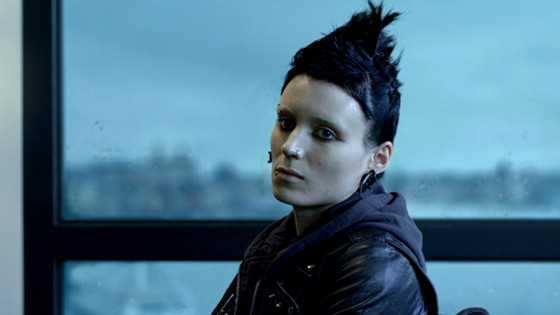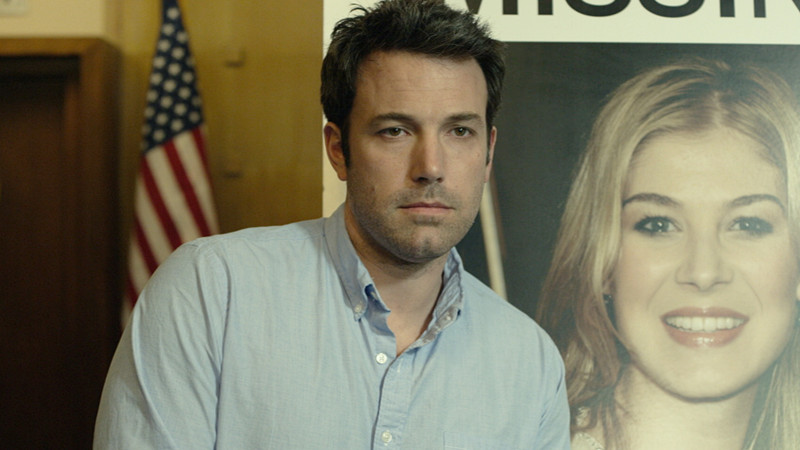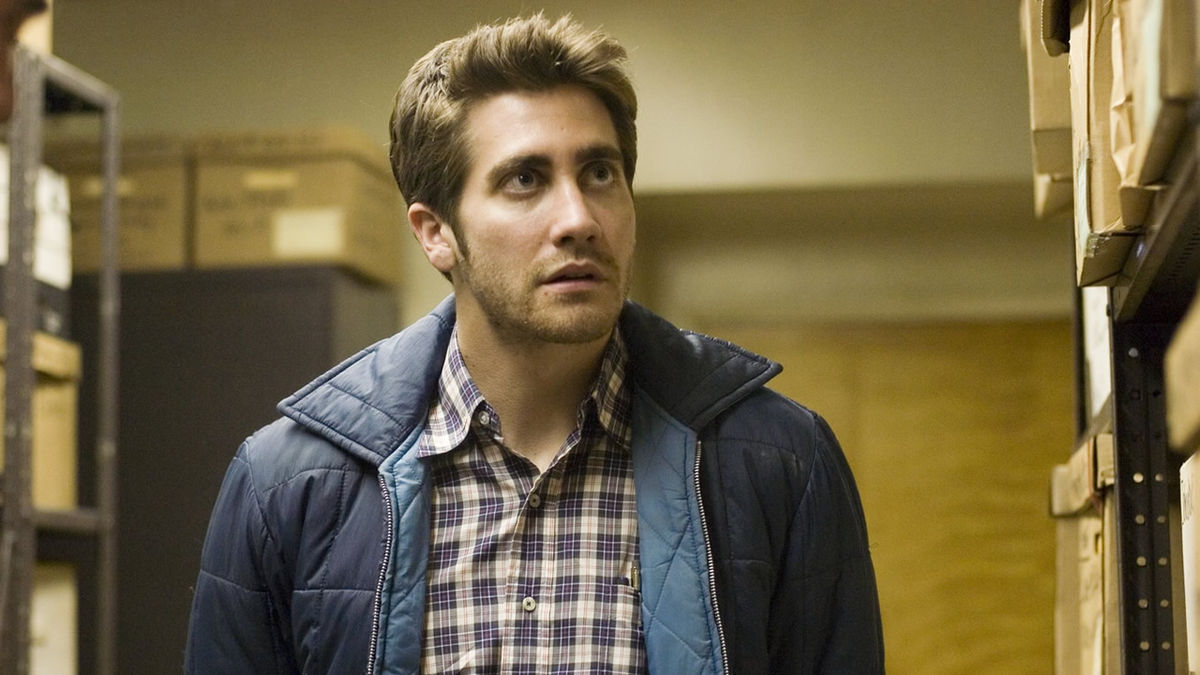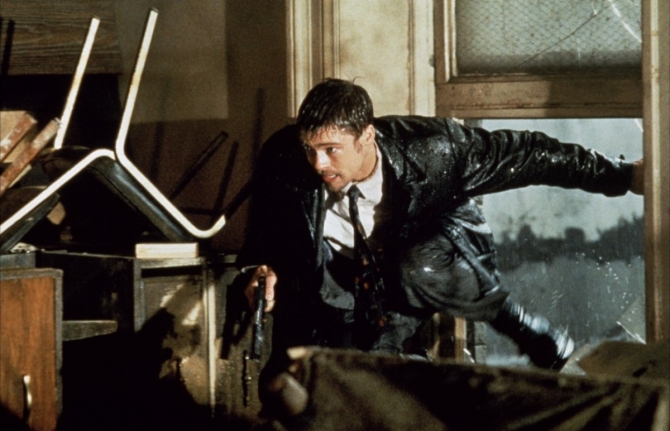6. The Girl with the Dragon Tattoo (2011)

It isn’t hard to see why Stieg Larsson’s novel caught David Fincher’s eye. Corruption, misogyny, trauma, Biblical references and a decades-long mystery begging to be solved… Almost every theme in this chilling Scandinavian tale seems tailor-made for a stone-cold cynic like him. The movie puts us in the shoes of Mikael Blomkvist, a disgraced journalist who’s hired by a wealthy tycoon to look into the puzzling disappearance of his grandniece. Blomkvist joins forces with one of most captivating characters in Fincher’s canon—Lisbeth Salander—a gifted hacker with a rather unpredictable personality.
Something that can be said about Fincher is that, when it comes to literary adaptations, he’s the best in the biz. Throughout his career, he’s not only successfully translated a number of great novels into the big screen, but you could argue that in some cases, improved upon them. There’s a lot of ground to cover here in just over 150 minutes, but Fincher does so with surgical precision, covering all major storylines and tying up every loose thread.
As a textbook example of Fincher’s biggest strengths and a distillation of all his signature themes, The Girl with the Dragon Tattoo is a pretty solid entry point for those eager to dive into his work.
5. The Social Network (2010)

Placing one of the era-defining films of the past decade at number five is bound to raise a few eyebrows. Now, before you fetch your pitchfork and join the angry mob, bear with me for a minute. You could make a strong case for putting any of the next five films on top, and either one would easily be considered the crowning achievement of any given director. It just happens that with David Fincher, common rules seldom apply.
When it’s all said and done, chances are that this will be the film that we remember him by. At least, it’s hard to think of one that has aged as gracefully or that will remain as relevant in the foreseeable future. The Social Network gave birth to a match made in heaven and one of the mightiest tandems in cinema with screenwriter Aaron Sorkin joining forces with Fincher. Together, they essentially turned a corporate litigation into a sprawling drama that proved to be as riveting as any procedural. Don’t let the benign setting of the story fool you—the characters in this movie are as cunning and venomous as any of Fincher’s serial killers—only they traded knives and guns for laptops and phones.
If you consider David Fincher’s career one continuous, large-scale study on the male ego, then Mark Zuckerberg is his magnum opus—a depressing microcosm of postmodern America and a bleak reminder of the rotten principles on which it stands.
4. Gone Girl (2014)

Every Fincher film is, to a certain extent, an indictment on society—serving both as a metatextual inspection of our worst tendencies and a much-needed wake-up call. In that regard, the director seems to use all the trappings and tropes we’ve come to expect in the thriller genre, only to flip them all over their head in the process. Gone Girl is the epitome of this—a film which presents itself as yet another Hitchcockian whodunit, later showing its true concern lies in psychology rather than crime. Fincher used this marital drama to examine gender politics and power dynamics with the same incisive edge as he dissected masculine disenchantment back in 1999.
Nothing can be taken at face value in Gone Girl: the movie plays with our bias by forcing us to shift our allegiances back-and-forth between the two bickering leads. Just as in real life, our perception of reality is inherently shaped by fabricated narratives that are practically shoved down our throats. Fincher showed us once again—like he did in Zodiac—just how easily the mass media sways public opinion and molds it to its liking, with no regard for how it might fare with any given individual. Facts and rumors are linked into a clear-cut narrative in a similar fashion to how a director assembles a number of scenes and edits them together to build a coherent story.
He’s probably made better overall films, but Gone Girl saw Fincher at the height of his powers, operating at an insane level of confidence he’s yet to pull off again.
3. Fight Club (1999)

No modern movie outside of Pulp Fiction has dominated college dorm room walls and barbershop talk the way Fight Club has. Only a handful of pieces of media—let alone movies—have held onto their place in pop culture for as long as Fincher’s testosterone-heavy classic. To this day, it’s the case of a film so chewed over, scrutinized and ingrained in our collective consciousness that all discourse has been rendered null.
If Se7en marked the arrival of a one-in-a-generation talent, Fight Club officially established Fincher as one of the defining filmmakers of his era. Countless fans have tried their best at deciphering every last subtext and hidden layer, more often than not by painfully misreading the movie as a literal endorsement for insurrectionary anarchism and unchecked uber-masculinity. Even though it was originally conceived as a slick satire to those principles, there’s no denying that part of its appeal came in how it reflected the same existential angst that’d been troubling a whole generation at the time.
As a puzzle box, it’s a fascinating two-hour adrenaline rush where Fincher seems to be firing on all cylinders. However, once it’s solved and deciphered, the film loses part of its magnetic pull. All in all, Fight Club crosses the thin line between edgy pretentiousness and genius self-awareness that makes it so hard to assess without sounding condescending. And yet, the fact that we’re still wrapping our heads around it in 2021 is proof enough that the movie achieved exactly what it set out to do.
2. Zodiac (2007)

This film chronicles the investigation of the eponymous California serial killer who was responsible for several macabre murders and notoriously taunted police with cryptic cyphers and letters in the late 60’s. Purely as a procedural, Zodiac is the product of a master in full command of his craft. A lesser director would easily crumble at the prospect of weaving through such a nauseating trail of clues and crucial information. Fincher manages to do so at breakneck speed, carefully threading together up to the smallest detail and somehow cramming a decades-long investigation without losing a step.
Zodiac has been described as a film about loss of innocence and the ultimate post-9/11 era neo-noir. Those distinctions are certainly warranted, but if there’s a driving force behind the story, that’s obsession and paranoia—both bred by the unflinching search for truth in a seemingly unsolvable case. What sets this film apart is the way Fincher shifts the focus from the mystery at hand to the heavy toll it takes on those trying to hunt down its culprit. For these individuals, lack of closure is the ultimate punishment, an unbearable reality that makes their efforts even more helpless.
The reason why Zodiac is particularly agonizing to sit through is because we, the viewers, are constantly reminded that this isn’t pulpy entertainment but a dark page of our history. And if Fincher has taught us anything in the past thirty years is that satisfying endings and happy resolutions are something one shouldn’t hold out for.
1. Se7en (1995)

If there’s a common thread running through the entirety of David Fincher’s work, that’s the fatalistic outlook looming over every story he’s made to date. Whether it deals with serial killers, narcissist entrepreneurs or jaded screenwriters—if you put on any of his films, chances are it’s going to come with a healthy dose of nihilism. Bookending this list, we turn to a bleak noir drenched in the same sense of hopelessness and dread that’s become a trademark in Fincher’s career.
Se7en proved that he had learned from his growing pains and had finally come to his own as a filmmaker, instantly putting Fincher on the map as one of the hottest commodities in Hollywood. Brad Pitt and Morgan Freeman play two homicide detectives—a cocky, hot-headed rookie and a hard-nosed veteran on the verge of retirement—who join forces to track down a deranged killer who makes moral statements out of his victims.
Se7en addresses one of the director’s biggest fascinations: the inescapable bond that links detective and criminal together in every homicide investigation. The movie never shows interest in concealing its culprit, in fact, the real thrill comes in the way his twisted agenda and morbid schemes gradually wrecks our lawful duo.
There are movies that pack a punch, and then there’s this. If the highest purpose of any thriller is to make our skin crawl and shake us to the chore, then it’s hard to think of a more successful one than Se7en.